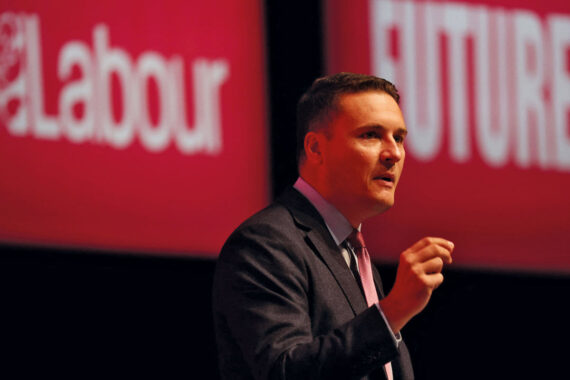Senior figures at the Labour Party have been making waves this year with some questionable comments and views about general practice.
Shadow health secretary Wes Streeting started off the year on the wrong foot when he declared war on GP partnerships.
Mr Streeting called the partnership model ‘murky [and] opaque’, saying he wanted to abolish it and move towards a salaried service, in which salaried GPs would be ‘working in modern practices alongside a range of other professionals’.
Alongside proposals to enable patients to self-refer into secondary care, Mr Streeting’s vision would strip GPs of their roles as ‘sole gatekeeper’ for specialist services.
The comments might suggest that Labour is ill-informed about what really happens in general practice. As we know, there have been attempts to bring in a number of different clinical roles under the ARRS, with limited success. Some 40% of funding set aside to pay for them had remained unspent two years into the scheme.
But the shadow health secretary hadn’t paid any attention to any numbers, otherwise he might have a little more insight into general practice finances, which he claimed are shrouded in mystery.
‘The way that GP practices operate financially is a murky, opaque business,’ he said, apparently unaware of the annual publication of NHS Digital’s Payments to General Practice.
Labour leader Sir Keir Starmer also jumped on the bandwagon when he backed up his colleague’s appraisal of partnerships.
As small businesses, he said, they entail too much admin and take GPs’ focus away from caring for patients. GPs themselves know all too well the burden of the admin in general practice, but much of it comes from the bureaucracy and demands from above as opposed to coming from the requirements of running a small business.
Sir Keir also suggested that young doctors are put off taking on GP partnerships, such is its inefficacy and lack of appeal.
However, he offered no evidence that the partnership model itself is to blame for too few GPs opting to become partners in their practice – there are too few GPs full stop.
Would switching up the way general practice is run (at a potential cost of £7bn according to DHSC figures) solve the challenges with recruiting and retaining GPs? The problems go much deeper than that.
By April, Labour’s position had softened slightly. No longer were there firm plans to phase out partnerships, the certainty replaced by a degree of neutrality.
‘We are genuinely open minded about the future of the partnership and other models of primary care delivery,’ Mr Streeting said in his speech. Any fears that Labour was planning to target existing partnerships were unfounded, he added.
Come the Labour party conference in October, it seemed the shadow health secretary had done a complete about-turn on his original view, insisting that he had now, in fact, come to appreciate the value GP partners bring.
He had been listening to GPs, salaried and partners, and would continue to do so in considering how best to operate general practice.
Mr Streeting was still resolute that other healthcare professionals should take on more of the legwork in primary care.
Community pharmacies could have a greater role in Labour’s plans for a ‘neighbourhood health service’, which would also see opticians referring patients to specialist eye doctors, for example, to free up GPs’ time.
Some suggest that this kind of primary care model – likened to the Darzi centres of old – creates too many different access points into the NHS, which leads to confusion for patients.
Worse though, without GP ‘gatekeepers’, signposting people where they need to go and when, patients must direct themselves to the right place.
As one GP commented, patients with internal bleeding shouldn’t be guessing what tests they need and which specialists they should see, because they ‘may bleed to death while deciding’.
Back in January, Mr Streeting declared his intention to do what’s ‘right for patients’.
It seems quite clear that this isn’t it.


















Seems clear that Labour have no coherent plan for the NHS.
Based on previous history Labour will resort to spending more money we haven’t got, and more micromanagement, with the inevitable result of further falls in efficiency and more debt for our children.